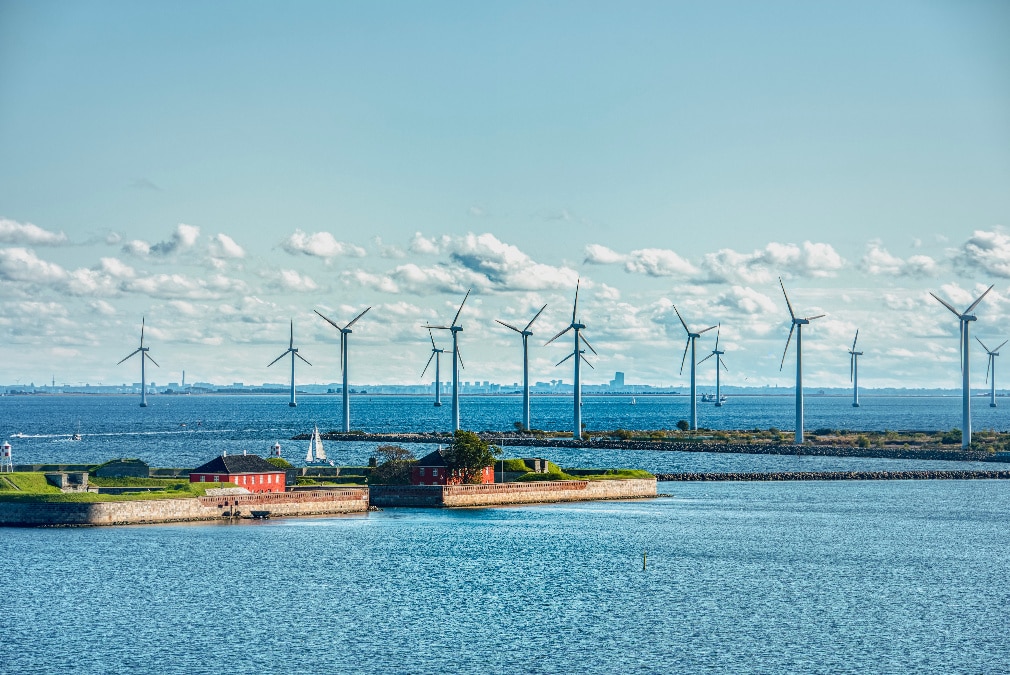A major North American utility is embarking on an ambitious plan to decarbonize its supply chain, aiming to lead by example and inspire its ecosystem to reduce carbon emissions. After helping them quantify and prioritize supply chain emissions, we continued our collaboration with a comprehensive study, which included creating a roadmap to identify decarbonization opportunities across key supply categories. High-emission categories, when traced upstream, all pointed to upper-tier suppliers in heavy industry such as concrete, steel and aluminum manufacturing, as well as the use of heavy machinery.
Context
According to CGI’s 2024 Voice of Our Clients, 87% of utilities’ executives identify climate action as a major trend shaping their organization, with over 80% highlighting the impact of value chain reconfiguration on their business. Addressing climate change within the value chain, particularly through reducing supply chain carbon emissions—commonly referred to as Scope 3 emissions—encompasses all indirect emissions generated upstream in the value chain. All goods and services contain “embodied carbon” from the processes involved in their production.
After establishing a robust plan for managing direct emissions (scope 1 and 2), the client set sights on reducing embodied carbon beyond its own infrastructure. We collaborated with the Sustainability and Strategic Procurement Departments to quantify and prioritize these supply chain emissions. This was followed by an in-depth analysis of the supply chain, procurement strategy, environmental impact of certain goods, and supplier maturity, which allowed us to develop a clear roadmap for decarbonization.
Challenge: Decarbonizing heavy industries while securing operations and supply chains
The client’s ambition to lead by example can play a pivotal role in addressing emissions in heavy industry by leveraging the influence of utilities and governments. Other utilities, municipalities, leading manufacturing firms and transportation ministries across the continent could also play a crucial role in driving this change.
Pursuing ambitious decarbonization goals can drive substantial market changes, particularly in hard-to-decarbonize industrial sectors. However, the complexity of scope 3 emissions presents a major challenge, as a significant portion of embodied carbon comes from tier 2, 3, 4, or even more remote suppliers. This complexity highlights the need for suppliers and manufacturers to be proactive and adopt supply chain management digital solutions to advance their decarbonization efforts.

“CGI’s ability to effectively lead the working groups and provide relevant recommendations was crucial in developing a robust action plan. Their multi-sector expertise was instrumental in addressing the diversity of goods and services purchased by our company."
Manager – Sourcing Performance and Supplier Development, major North American utility
Solution: A decarbonization roadmap
Our Business Consulting experts collaborated with the client’s procurement team, engineers and environmental specialists to identify decarbonization initiatives, including:
- Reducing the use of specific products or services;
- Substituting with fundamentally different products;
- Replacing high carbon materials;
- Managing energy consumption (suppliers’ scope 1 and 2 emissions) across not only tier 1 suppliers, but also tier 2 suppliers and beyond.


Key deliverables:
The key project deliverables were structured across two phases
Phase 1 - Carbon accounting: The first step involved developing a methodology to prioritize over 100 supply categories and quantify GHG emissions for over 600 types of products and services, striking a balance between rigor and practicality.
Phase 2 included several important initiatives:
- Life cycle assessments: We conducted detailed life cycle assessments on over 15 prioritized categories of purchased goods and services, including underground and overhead distribution lines, transformer stations, transmission lines and hydroelectric turbines.
- Decarbonization roadmap: We developed a comprehensive, actionable roadmap to implement more than 100 decarbonization initiatives for the top 10 categories of goods and services. This roadmap emphasized the importance of engaging the entire supply chain to enhance their decarbonization efforts.
- Sustainable procurement: We created a roadmap to integrate climate change considerations into the client’s sustainable procurement strategy, based on a maturity assessment of the climate change readiness of over 150 top suppliers and a benchmark of sustainable procurement best practices.
Business outcomes and findings: A tailored decarbonization decision-making approach
Our collective expertise in sustainability, change management, energy transition strategy and procurement strategy, along with our extensive multi-sector experience, facilitated the alignment of overall decarbonization goals, the promotion of a life-cycle mindset, and the communication of tangible opportunities. The following outcomes were achieved:
- Internal alignment: We bridged the gap between procurement teams and operations regarding environmental targets by engaging internal stakeholders.
- Robust roadmap: We provided a comprehensive understanding of the main sources of embodied carbon emissions, supplier maturity, market structure, carbon reduction technologies and strategies, resulting in a detailed and actionable roadmap.
- Scalable approach: We tailored the approach and tools to the client’s specific context for long-term sustainability and leverage for addressing other scope 3 “hot spots.”


In conclusion, our study highlighted several key insights into the decarbonization of supply chains:
- Decarbonizing heavy industry: The leadership of utilities and governments in setting ambitious decarbonization targets is vital to addressing emissions within heavy industry. Their efforts can drive significant market transformation.
- Complexity of scope 3 emissions: Heavy GHG emissions often originate from tier 2, 3, 4, or even more distant suppliers, making decarbonization a complex challenge. This complexity underscores the importance of adopting business and technology solutions to effectively track supply chain emissions.
- Advanced technology solutions: The increasing interoperability of supply chain management and warehouse management systems is pivotal for managing emissions, assessing risks, and identifying potential bottlenecks. These systems play a critical role in the accurate tracking of GHG emissions across the supply chain.
- Influence and leadership: Utilities have the potential to significantly impact the decarbonization of the economy due to their substantial consumption of heavy industry products.
-
These findings point to the growing need for integrated approaches that combine regulatory leadership, technological innovation, and supply chain transparency to drive successful decarbonization efforts.




